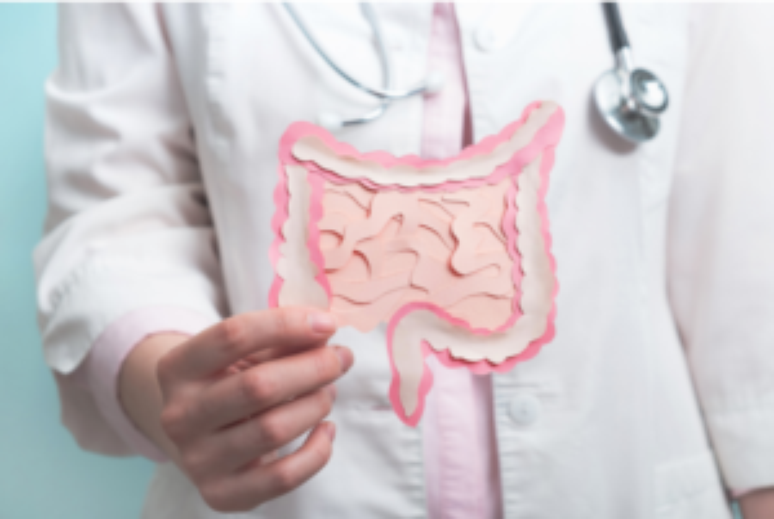Discover 10 foods and habits to keep your gut healthy in the best possible way
Intestinal health is very important for the functioning of the body as a whole. Having a properly functioning intestine allows for the well-being of the body as a whole, while also aiding in skin health and good mental health. Although it is linked to the food consumed, the maintenance of the intestine does not depend only on that. For this, it is necessary to put into practice some essential habits for a healthier life.
html[data-range=”xlarge”] figure image img.img-3a910a414e890a6e2f53958ee38bc0b5umrv5z4e { width: 774px; height: 519px; }HTML[data-range=”large”] figure image img.img-3a910a414e890a6e2f53958ee38bc0b5umrv5z4e { width: 548px; height: 367px; }HTML[data-range=”small”] figure image img.img-3a910a414e890a6e2f53958ee38bc0b5umrv5z4e, html[data-range=”medium”] figure image img.img-3a910a414e890a6e2f53958ee38bc0b5umrv5z4e { width: 564px; height: 378px; }HTML[data-range=”small”] .article__image-embed, html[data-range=”medium”] .article__image-embed { width: 564px; margin: auto 0 30px; }
How important is gut health?
The intestines are responsible for absorbing most of the nutrients that enter our body. When the intestines are functioning normally, food makes its way through the digestive system at metabolic rate. When this movement is performed correctly, the food mass and fecal cake are not retained, being eliminated at the right time. In addition to being responsible for digesting and absorbing nutrients from food, the gut is also home to a large amount of beneficial bacteria known as the gut microbiota. Another important factor is that 70% of the immune system is in the gut. That is, when intestinal health is good, it is possible to protect the body from infection and disease. In summary, gut health is important for:
- Ensure the absorption of nutrients;
- Balance the intestinal microbiota;
- Regulate intestinal transit;
- Promote mental health;
- Prevent disease.
How to maintain intestinal health?
In general, intestinal health is linked to the food consumed. Therefore, the best way to keep the intestines functioning properly is to maintain a balanced diet, always trying to eat healthy foods. Choose foods high in fiber, fruits, vegetables, greens and whole grains. These foods are ideal for providing essential nutrients and fiber responsible for promoting intestinal health. Fiber helps your digestive system function properly, preventing constipation and feeding the beneficial bacteria in your gut. On the other hand, you should avoid processed foods high in saturated fats and refined sugars, as they can harm your gut health. In addition to the foods eaten, there are also other habits that can harm the health of the intestine. Among these are:
- lack of exercise;
- Excessive alcohol consumption;
- To smoke;
- Low water intake;
- Fatigue
10 foods and habits that promote intestinal health
1. Consume foods rich in fiber
As mentioned above, dietary fiber is very important for maintaining intestinal health. They promote proper functioning of the digestive system, prevent constipation and feed the beneficial bacteria in the intestines. To do this, include foods like fruits, vegetables, greens, whole grains, beans, lentils, and seeds in your diet. Among the fresh fruit you can choose orange, papaya, plum or pineapple. It’s also important to include oats and whole grain foods. In the group of vegetables you can consume eggplant, broccoli and greens.
2. Consume probiotics
Probiotics are beneficial bacteria that help balance the gut microbiota. They can be found in foods such as plain yogurt, kefir, sauerkraut and kombucha. Additionally, probiotic supplements may also be an option. Consult a healthcare professional for proper recommendations.
3. Chew slowly
Chewing is a fundamental step in promoting intestinal health. Chewing calmly and correctly, you grind the food in your mouth, making it easier for it to be absorbed in the intestines. On the other hand, when we swallow large chunks of food, we make digestion difficult. This causes the body to exert more effort than necessary, causing the feeling of fatigue and increasing the production of gas.
4. Consume healthy fats
Healthy fats are also essential for maintaining gut health. Include healthy fats in your diet, such as avocados, olive oil, nuts, flax seeds and chia. These fats aid in nutrient absorption and help reduce inflammation in the intestines.
5. Practice physical exercises
The practice of physical exercises is beneficial for the health of the body as a whole, it would be no different with the intestines. Regular exercise encourages bowel movement and contributes to overall digestive health. These movements are known as peristaltic, being responsible for the transit of faeces through the intestine until evacuation. To maintain regular bathroom trips, I make a habit of exercising at least three times a week.
6. Hydrate well
The consumption of water is essential for the health of the body, after all a healthy diet alone cannot bring many benefits if the body is not well hydrated. This happens because stool is made up of 75% liquid. That is, without drinking enough water, it becomes difficult to make fecal cake and go to the toilet regularly.
7. Consume prebiotics
Just like probiotics, prebiotics are also very important in maintaining gut health for days. Prebiotics are foods that are beneficial for keeping beneficial bacteria alive in the body. That’s because prebiotic foods are high in fiber that feeds the beneficial bacteria in your gut. Include foods like garlic, onion, asparagus, artichokes, green plantains, oats and barley in your diet.
8. Avoid overuse of antibiotics
Antibiotics can affect the gut microbiota, killing both harmful and beneficial bacteria. If antibiotics are needed, be sure to talk to your doctor about probiotics or other measures to help restore gut health after treatment.
9. Take care of the quality of sleep
Sleeping well is very important to keep the body functioning and is also related to intestinal health. So try to establish a regular sleep routine and make sure you get enough sleep every night.
10. Manage your stress
Stress is part of many people’s routine, but in addition to having an impact on mental health, it can also be very harmful to physical health, including intestinal health. The best way to prevent the gut from suffering is to look for strategies to manage stress. Among the solutions that may be interested are relaxation techniques, meditation, yoga or activities that provide pleasure and relaxation. It’s important to remember that these are some of the habits that promote gut health. Also, there’s no point in doing just one of them and expecting great results. These habits, in fact, are part of a set of practices that will bring greater quality of life and well-being. Consulting with a healthcare professional, such as a doctor or nutritionist, can also be helpful in getting personalized advice tailored to your individual needs.
Source: Terra
Ben Stock is a lifestyle journalist and author at Gossipify. He writes about topics such as health, wellness, travel, food and home decor. He provides practical advice and inspiration to improve well-being, keeps readers up to date with latest lifestyle news and trends, known for his engaging writing style, in-depth analysis and unique perspectives.








